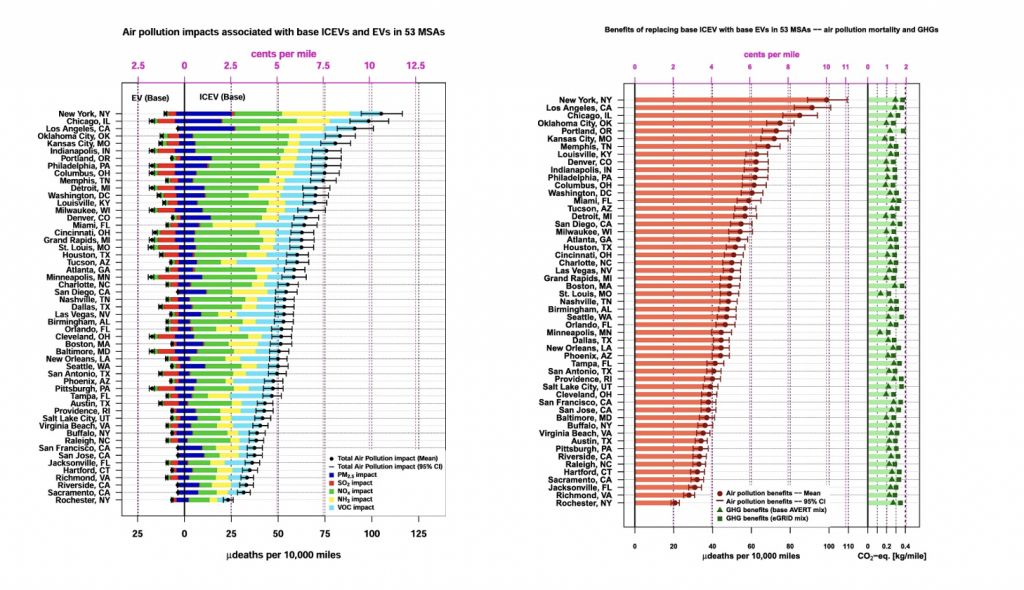Going electric isn’t the silver bullet, but it will be better for your health.
Wherever you stand on the pros and cons of Electric Vehicles (EVs), increasing the use of EVs will undoubtedly improve air quality.
At AirScape, we measure hyper-local air pollution in real time. At street level, electric vehicles provide clear benefits for local air quality, with zero exhaust emissions.
Of course, even electric vehicles generate particulate matter through road, tyre, and brake wear. And they carry a hefty carbon footprint in their manufacture and in the production of batteries. However, according to a 2021 study by the International Council on Transportation, emissions over the lifetime of electric vehicles in Europe are 66% to 69% lower than those from petrol cars.
Switching to electric vehicles could also help to minimise noise pollution, especially in cities where speeds are typically low and traffic is frequently at a standstill.
Another study in the US found that the use of EVs leads to substantial air pollution health and other benefits.

“Incentivizing a rapid uptake of EVs will improve population health nearly immediately as most benefits of reduced mortality attributable to air pollution accrue in the short term.”
Ernani F.Choma, John S.Evans, James K.Hammitt, José A.Gómez-Ibáñez & John D.Spenglerb
We installed our award-winning AirNodes at five locations in Cork, Ireland, which show that there are measurable improvements in air quality where there are no diesel and petrol engines. The success of Cork’s award-winning pedestrianisation project is also being hailed as a major step in making the city a much safer and healthier environment.
Now AirScape in Camden is giving us minute-by-minute air quality data at street level. The expanded ULEZ and other initiatives are helping to clean up London’s air. More good news is that, according to the ONS, over half of younger drivers are likely to switch to electric in the next decade.
We’ll soon be able to see the improvements in air quality on London’s streets, at airscape.ai, and also see where there’s still room for improvement.
AirScape’s Chief Science Officer, Professor Matthew Johnson says:
“We do see the benefit of banning traffic on air quality in the centre of Cork. We’re watching AirScape in Camden closely to see how the shift in the composition of the vehicle fleet takes effect in London.”
